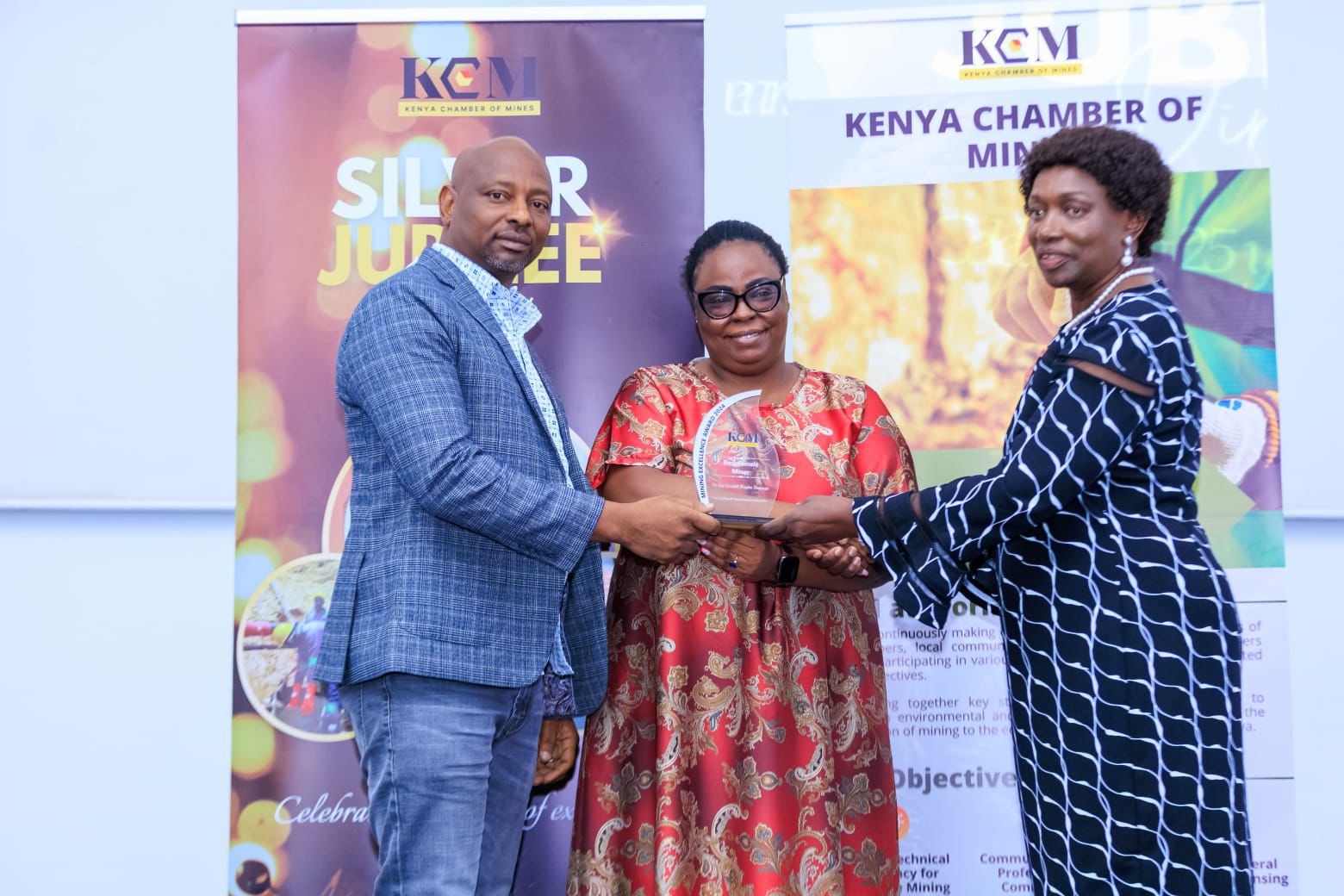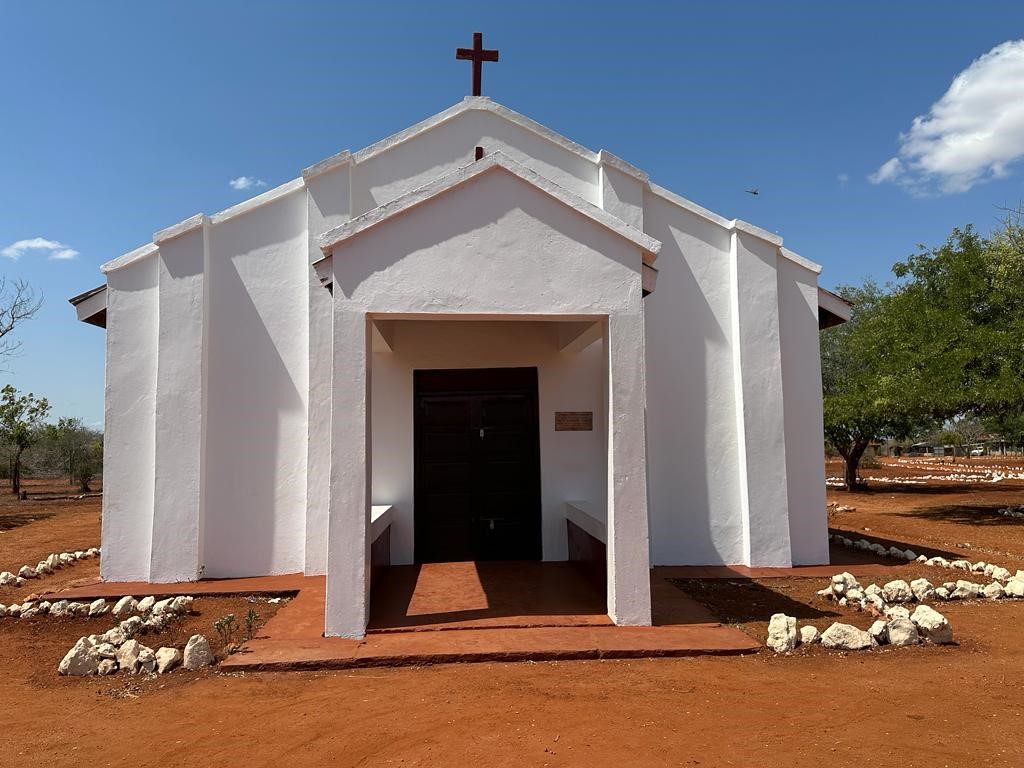Our Story
The extraordinary journey of Elizabeth Wanjiru, "The Queen of Green," who defied all odds to build Kenya's first woman-owned mining empire.
From a small village in 1935 to founding a gemstone dynasty that spans two generations, this is the story of courage, determination, and the pursuit of excellence.
Celebrating Excellence
Our commitment to quality, sustainability, and innovation has earned recognition from industry leaders and international organizations.

Excellence in Mining
Symbol of our commitment to quality and innovation

Second Generation Leadership
Mr and Mrs Kilio carrying forward the vision
Awards & Recognition
From Elizabeth Wanjiru's pioneering achievements to today's continued excellence, the Baraka Mining legacy has been recognized across multiple domains.
Pioneering Woman Miner
Elizabeth Wanjiru became the first woman to own and operate a mining company in Kenya, breaking gender barriers in a male-dominated industry.
Industry Leadership
Baraka Mining has been recognized for its leadership in ethical mining practices and community empowerment.
Sustainability Champion
Awarded for commitment to sustainable mining and environmental stewardship, setting new standards in the industry.
"These awards represent not just our achievements, but the dedication of two generations committed to excellence, sustainability, and honoring our founder's vision."
A Story of Courage
This story is based on true life events embracing an African woman who will be successful in life after she has had so many obstacles and difficulties but armed with the attitude of welcoming changes, was able to take on challenges that came with the African customary law and was able to conquer all and provide an example for all her generations to come.

Elizabeth Wanjiru - The Beginning of a Legend
HER OWN WOMAN: The Life of Elizabeth Wanjiru
On the eve of 5th August 1935, a baby girl was born into the family of Mr. Stephen Kinyanjui and Mrs. Gladwell Kinyanjui. Unbeknown to them, their new-born child had a bright future despite all the challenges that were to come which conflicted with her culture. The Kinyanjui family decided to name her Elizabeth Wanjiru and this is her story.
Born in the year 1935, gender roles were strictly adhered to by the African communities where women were to stay home and do wifely duties while the men had to go out and search for ways to fend for their families. Despite Wanjiru being raised in such a community, fate had other plans for her. This lifestyle did not suit Wanjiru because she was curious about what was happening in the outside world and wanted to become successful and independent. After much consideration, Wanjiru decided to take a bold step and leave home in search of a better future for herself and for her generation to come.
With all her ambitiousness, she was able to learn the skill of tailoring, at that time she worked at an Indian shop in Nairobi Kenya with so much aspiration she decided to move and was also able to master the craft in such a manner that she opened her own shop in another country. Wanjiru crossed borders into Tanzania and settled in Arusha, she was able to make a name for herself in a place far away from home.
Armed with the tailoring skill, Wanjiru decided to set up her shop where she decided to sew bandeaus, and knowing Wanjiru, this was just a front to attract women to her shop.

Wanjiru in her tailoring days in Tanzania
Discovery and Determination
During this time, she would see brokers sell coloured stones not knowing what they were and make money, making her even more curious. With a good reputation as a skilled tailor, Wanjiru attracted more customers and as the nature of women and the love for gossip, they also talked about the coloured stones, and that's when she heard they were called gemstones. She got so intrigued. she started asking questions and doing her own research on gemstones.
After months of research, she learned that her mother land, Kenya, also had gemstones and that is when she thought of returning to her homeland. After 1963, after Kenya gained its independence, Wanjiru knew it was time for her to relocate. Despite the gender roles preventing her from doing so, Wanjiru was determined. With no one to help her and all odds against her, she decided to do the unthinkable.

Elizabeth with her workers in the early mining days
THE QUEST: How it all started
On this conquest, to search for minerals, Wanjiru's journey was going to be hard and filled with hazards, some of them, life-threatening.
In the year 1977, After some search in Kenya, Wanjiru decided to start her quest in the coastal area known as TaitaTaveta in Tsavo at a place called Kambanga; She pegged, got her licenses and owned her mines legally.
Being in a male-dominated field, it was difficult for her to recruit new employees as people never trusted her to become successful in the mining industry. But with sheer determination, she recruited 5 workers who believed in her course to searching underground riches.
With only 5 workers by her side, Wanjiru was the only woman in Kenya who practiced mining at that time. Wanjiru faced stiff competition from Greek companies that had already settled in Kenya, they also had all paraphernalia needed, market also and had employed most of the able-bodied Africans and it was hard for Wanjiru to get more employees.
Wanjiru located a mining area that was very deep in the savannah where no one had settled yet. At the time TaitaTaveta was a very arid area that was sparsely populated and there was always a risk of encountering wild animals. With not enough workforce, Wanjiru was forced to fetch water and cook for her 5 workers daily. TaitaTaveta being a very arid area, finding a water source was next to impossible. Wanjiru used to walk for long distances in search of water paddles every time it rained then sieve the water with a "Kanga" then store it in jugs and clay pots for future use.
With wild animals on the loose, Wanjiru used to be extra careful while going to and from work or when she searched for water but one day her luck almost ran out. While preparing lunch for herself and her workers, a lion appeared out of the bush and and her workers were left scampering to safety. With no one in the vicinity to help them, Wanjiru decided to take matters into her own hands. She took firewood that she used to collect and lit a very big fire which scared the lion away and this made her workers gain more confidence in her by just seeing her willpower to make sure they were safe.
With the presence of wild animals in TaitaTaveta, it attracted poachers which were also referred to as shifters. Apart from hunting wild animals, the poachers would also break into Wanjiru's granaries and steal her food and commodities which left her and her workers with nothing to eat for some days. This would really demoralize them as there were also no means of communication. The only means they could communicate with family members was by sending letters and this only happened once per month. With little to no communication at all with the outside world and family members really demoralized them but they were too tough to quit.
In also the presents of diseases malaria occupied a unique place in the annals of history, Malaria's long reign still remains to be one of the deadliest diseases, back then it was named "king of diseases". With the presents of its carriers in the Savanna it was easy for one to get this illness but by God's grace and protection not even one single day did Wanjiru happened to be ill.
Despite those hardships, while living in a tent, Wanjiru decided to learn how to do prospecting By God's kindness. Wanjiru came into contact with a former worker of the Greek mining Company who had better understanding and experience at this field of work.
He helped Wanjiru understand the nature of this work which they had to follow quarts which led to small samples of tsavorites that eventually led to a big deposit of tsavorites She was able to find mining areas where she could mine. Wanjiru and her workers being new to mining used a mining method known as open-cast mining which was economical for them. This method required them to use shovels, and wheelbarrows which made it so difficult and tiresome for them as they lacked experience and enough workforce.

Working in the mines - A journey of perseverance
Friendship and Breakthroughs
Within time Wanjiru studied the mines and understood the nature of it, in fact she became one of the best around the mines, it was a God given gift to her many were surprised, her being a "just a woman" how could she do it. It was like she was born and chose for it.
During her time there she met a Scottish man by the name Campbell R. Bridges. Campbell owned the mines neighbouring Wanjiru's, it was like a one point five kilometer distance. They build their friendly relationship in a manner that they helped and elevated each other, anywhere Campbell got stuck he'd ask help from Wanjiru and vise versa. Since Campbell was there for a while, he was well equipped, for he was such a good soul he'd help out Wanjiru, even when She had shortage of food, Campbell would help with some food to sustain her and her workers for a while until they could sort themselves out.
In the mines they were these men who invaded the mines and stole whatever they could find they were named "zururas". So anytime these zururas happen to invade Wanjiru's mines Campbell would help her with security and took his men to guard Wanjiru's mines.
Campbell made the Kenya Tsavorite mining industry known to the outside world he was a gem expert thus know by many in and outside Kenya. He really worked to market the tsavorite mining industry in Kenya and eventually his hard work paid off. The industry go recognised all around.
Even though Campbell departed their neighbourly friendship lived on with their generation to date.

Wanjiru with her daughter Gladwell - Passing the torch
THE UPTURN: How things worked out for Wanjiru
In the year 1984, Wanjiru decided to form a mining organization that she named Baraka Mining Company.
After facing hazards for some time, Wanjiru got her first breakthrough. It was such a victory for her everything fell into place. She produced unimaginable amount of Tsavorites. Her hard work had finally paid off, that gave her hope and stimulus to push even harder.
And in 1985, Baraka Mining & Minerals Limited was born and got recognition all around after the big breakthrough and it was easier for Wanjiru to find market and now she decided to expand her company and went to Kwale county since exploring these minerals was not only her source of income but also her passion, she loved what she did.
Wanjiru decided to continue to mine these minerals in Kwale too, at this time she mined several types of minerals which included red garnet, tourmaline, rubies, and sapphires.
Wanjiru is considered a heroine because she put the sake of others- be loved ones or true strangers- before her own. She performed the act of random kindness in a prosocial manner without any personal gain, she helped the destitute families by giving them jobs and even taking their children to school and paid their school fees, she took care of a lot of people. Wanjiru is considered a mother not only to her two children but also to many.
She did the most for her community, she would not stand by see anybody going through a hard time while she could be of help. She treated other people with respect, care, and compassion thus God kept on blessing her. She helped a lot of people venture into the mining industry including her own daughter Gladwell Wangui Kinyanjui.
She introduced her to this field at a very young age Gladwell was lucky because not only did she have one of the best by her side to guide her but also a mother and a mentor.
Wanjiru did the business locally and later expanded internationally to countries like Thailand, Germany, India, et cetera. She made a name so big for herself thus she was known as The Queen of Green. She became one of the biggest gemstone suppliers in Kenya but the only woman to do so at the time.
Baraka Mining & Mineral Limited grew and was able to employ more than 200 employees and feeding many families.

The Queen of Green - A woman of faith and legacy
A Legacy of Faith and Community
Wanjiru was such a religious woman tied to live in the ways that she believed God would wish her to, she was a devoted Christian that she built a place of worship an Anglican Church Of Kenya (ACK) for the community around the mines because they were not able to go to church Kambanga being an isolated area. They had Sunday services where people would gather to worship. This brought them together and they all lived in harmony. To date Wanjiru is a highly respected woman both by the people and the church.
In 2013, Elizabeth Wanjiru, Queen of Green, had to retire from the company due to her deteriorating health condition and passed the mantle down to her daughter Gladwell Wangui. Having a good example set for her, Gladwell decided to follow in the footsteps of her mother. The Baraka Mining Company is a family business inherited from Elizabeth Wanjiru to her kins, it runs under Gladwell Wangui, her husband Christopher Kilio Maina and her brother Moses Kinyanjui. It is one of the companies that produce the most tsavorites in Kenya, to date, they have really worked hard to keep it stable and running.
Two Generations of Excellence
In 2013, Elizabeth Wanjiru, Queen of Green, had to retire from the company due to her deteriorating health condition and passed the mantle down to her daughter Gladwell Wangui. Having a good example set for her, Gladwell decided to follow in the footsteps of her mother.
The Baraka Mining Company is a family business inherited from Elizabeth Wanjiru to her kins, it runs under Gladwell Wangui, her husband Christopher Kilio Maina and her brother Moses Kinyanjui. It is one of the companies that produce the most tsavorites in Kenya, to date, they have really worked hard to keep it stable and running.
